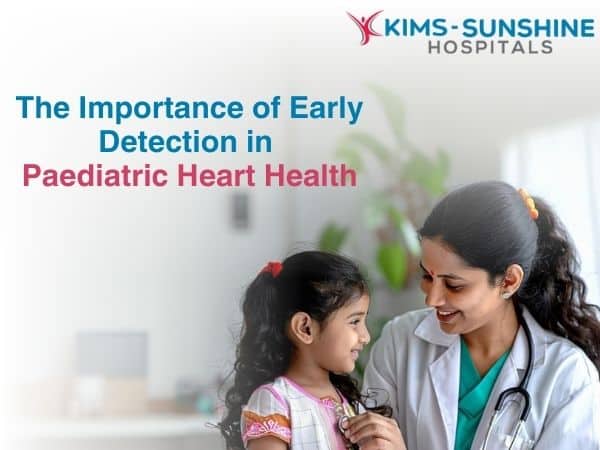
The Importance of Early Detection in Paediatric Heart Health

Children keep growing by leaps and bounds in a very short span of time and their bodies need to keep up with their constant growth spurts. Most of the time, this is what happens but the story is slightly different when children are born with certain medical conditions also called congenital defects. The heart is one such organ which needs to be formed very perfectly- with all its chambers, valves, muscles, innervation and other components. At times there may be issues with the formation or closure of a particular valve or the wrong kind of connection between arteries can be observed. All of these can cause developmental problems for children.
Benefits Of Early Intervention For Congenital Heart Defects
Technology and infrastructure have improved greatly in the medical sector, so much so that we can test for any condition way before the baby is born using specialised imaging or blood tests. This is called prenatal screening. Other tests are done as soon as the baby is born, called Newborn Screening, like using a simple pulse oximeter to check for blood oxygenation levels. All of these strategies centre around just one aim- catch any medical condition soon and begin treatment in an appropriate manner. This also means that you as parents or caretakers can actively prevent any future complications and also improve survival rates after treatment is completed. It can obviously also help in reducing treatment costs.
How To Monitor Your Child’s Heart Health At Home
Some mild defects can mean that the child can stay home and get regular monitoring done. But more serious cases can necessitate more complex methods of monitoring- like medication. Surgery is suggested if there is no other possible option. Even then, non-invasive techniques are preferred over laborious open-heart surgical procedures. While all of this drama is happening, you can work on providing a safe space at home- by giving them good food, encouraging them to get some exercise, asking them to follow a sleep schedule and remaining optimistic generally, as getting too stressed can affect your interactions with kids. They may pick up on the fact that something is wrong and get affected by it all.
When To Consult A Paediatric Cardiologist
Imaging techniques have their own pitfalls and so prenatal screening may not be able to tell very definitively what the problem is. Many of these defects are also pretty asymptomatic at first which means they will not be caught early. Be on the lookout if you observe these signs shown by your child
- Cyanosis or bluish looking tongue, gums and nails in children can mean they are not getting enough of oxygen.
- Children also tend to breathe very fast in such situations- this is because the heart is not able to pump enough blood and is getting stressed and the body thinks it needs more oxygen. They may also not be able to breathe normally.
- Failure to thrive- this can also happen where children are not able to meet their developmental milestones or gain weight in the right manner.
- Very young infants can have issues with feeding – the child may refuse food, feel very tired while feeding and stop or complain of pain and discomfort.
- Temperature regulation also occurs due to blood flow and if the heart is not working properly, then the child may sweat even if the room is cool.
- Palpitations can be present.
- Children can also complain of pain in their chest.
Conclusion
The role of genetics in paediatric heart conditions has been observed very often- if you have a medical history in your family, there are higher chances of your child suffering from a defective condition. But doctors can now come up with monitoring and interventional plans. They can refer you to a paediatric cardiologist who specialises in taking care of children having heart defects. Many children go on to lead long and full lives, even if the initial few years of their lives looked dicey. So, look out for these signs and keep your little one safe by knowing when to talk to a paediatric cardiologist.
Frequently Asked Questions
Why is early detection important for paediatric heart conditions?
At what age should I start getting my child’s heart health checked?
How can I tell if my child has a congenital heart defect?
What tests are used to detect heart issues in children?
What is the treatment process if my child is diagnosed with a heart condition?

Dr. Shalini Mehrotra
MBBS, DCH
Consultant Paediatrician






